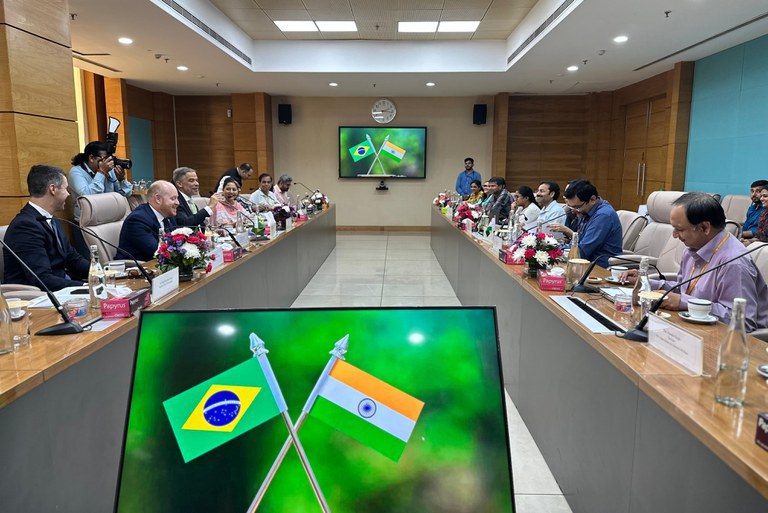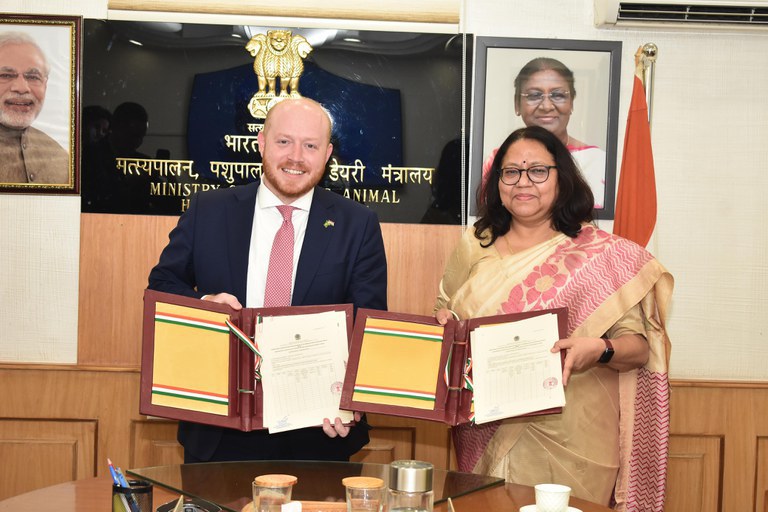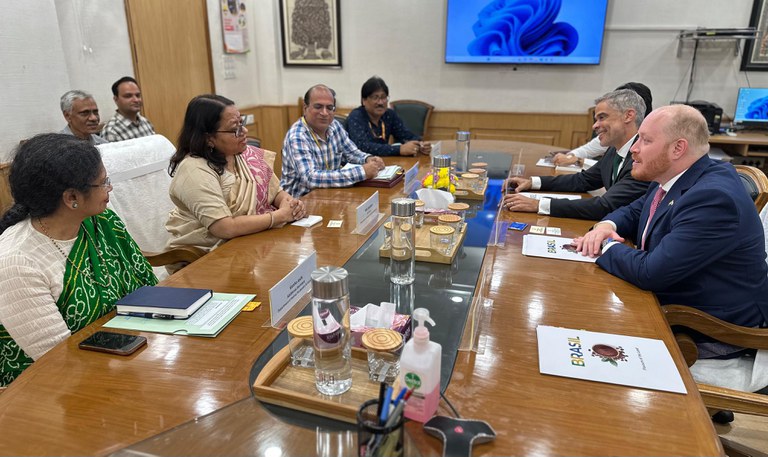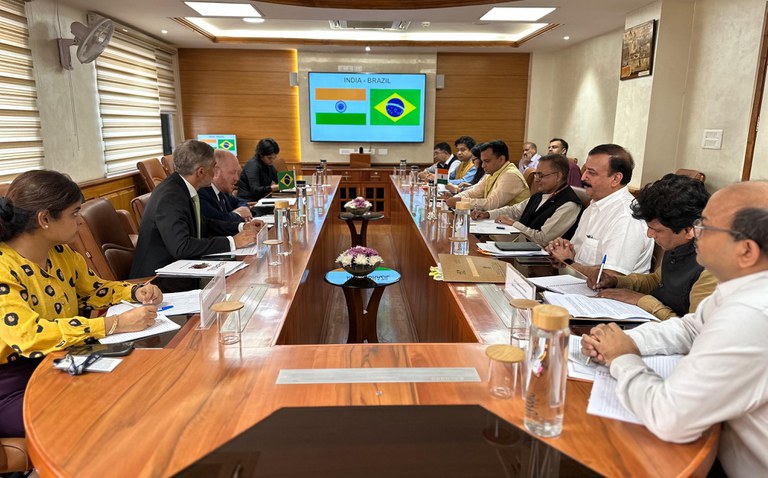Notícias
FOREIGN RELATIONS
Mapa mission to India secures market access for bone-derived products and expands bovine genetic material trade
To strengthen trade relations and expand the market for Brazilian products in India, a delegation from Brazil's Ministry of Agriculture and Livestock (Mapa) recently visited New Delhi. During this mission, two International Zoosanitary Certificates (CZIs) were signed with Indian authorities, formalizing improved export conditions for bovine and buffalo semen as well as bovine embryos. Additionally, an agreement was reached to open the market for bone-derived products used in gelatin production (Bone Chips). These agreements, under negotiation since 2019, create new possibilities for Brazil’s livestock sector and reinforce its status as a key agricultural supplier to India.
Deputy Secretary of Trade and International Relations Julio Ramos, led the Brazilian delegation, supported by agricultural attaché Ângelo de Queiroz and the Brazilian Embassy in India. The team met with the Department of Animal Husbandry and Dairying of India’s Ministry of Fisheries, Animal Husbandry, and Dairying, represented by Secretary Alka Upadhyaya. Besides signing the CZIs, discussions included market access for other Brazilian products such as poultry genetic material, non-edible poultry bile, pet food, degreased bones, horns, hooves, animal recycling products, and amireia (a type of ruminant feed).
These accomplishments were made possible by the dedicated support of Mapa’s Secretariat of Agricultural Defense (SDA), which ensures compliance with the sanitary certifications required by international markets.
The meeting also covered ongoing negotiations for the export of buffalo meat from India to Brazil, a key product for the Indian market. Indian authorities showed strong interest in expediting market access for casein, lactose, and camel milk exports to Brazil.
Since 2023, India has opened five new markets for Brazilian products, including açaí powder, açaí juice, farmed fish (aquaculture), wild-caught fish, and avocado fruit.
OTHER KEY MEETINGS
Beyond formal agreements, the mission featured strategic meetings with key authorities and stakeholders to enhance bilateral trade. Discussions with Secretary Nidhi Khare of the Department of Consumer Affairs focused on India’s import policies for pulses such as Black Matpe and pigeon peas, aiming to promote trade stability and explore new export opportunities. The delegation also visited the Brazilian Embassy in India, where they met with Ambassador Kenneth da Nóbrega and representatives from the Forum of Indian Food Importers (FIFI) to discuss the Indian market landscape and potential future collaborations.
The group also held talks with Faiz Ahmed Kidwai, Deputy Secretary of the Ministry of Agriculture and Farmers Welfare, to advance phytosanitary negotiations for Brazilian plant products. Brazil’s requests for market access for citrus, yerba mate, and Brazil nuts were discussed, along with India’s interest in exporting products such as pomegranates to Brazil. Indian representatives committed to accelerating the internal process to publish requirements for these products as soon as possible.
A meeting at the Ministry of Commerce and Industry with Deputy Secretary Vimal Anand addressed ways to improve market access for Brazilian products and explored mechanisms to reduce tariffs on items like cotton, orange juice, pork, and poultry. The potential for enhancing the India-Mercosur agreement, particularly for agricultural products, was also discussed.
Further discussions focused on food safety and import authorizations for processed products. In a meeting with Shri Kamala V Rao, CEO of the Food Safety and Standards Authority of India (FSSAI), participants discussed the practical implementation of actions outlined in the recent MoU between Mapa and FSSAI. This included a potential visit by FSSAI to Brazil in 2025 and progress in technical cooperation, especially for approving new Brazilian products such as açaí pulp and roasted baru nuts.
“Brazilian agriculture is a powerful tool for social transformation, generating employment and income. This mission to India reinforces our commitment to expanding the presence of Brazilian products in the Indian market. The Indian government assured us that public consultations for market access to citrus fruits—including tangerines, oranges, Tahiti limes, and lemons—as well as yerba mate, will be published in the coming weeks. This milestone strengthens commercial ties between Brazil and India, promoting agricultural exchange and fostering lasting cooperation, following the guidance of Minister Carlos Fávaro and Secretary Luis Rua,” said Julio Ramos.
BILATERAL TRADE OVERVIEW
Agricultural trade between Brazil and India holds significant importance. Brazil is among the top 20 exporters to India, with soybean oil and sugar accounting for approximately 80% of Brazilian exports. India ranks as the 14th largest destination for Brazilian agricultural products, with trade volumes reaching approximately $2.026 billion in the first nine months of this year and showing potential for further growth.
Press information
imprensa@agro.gov.br



